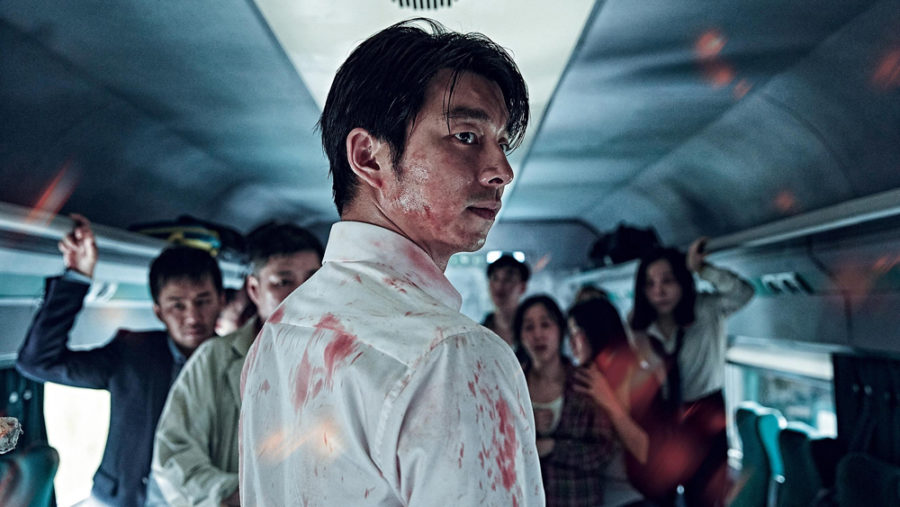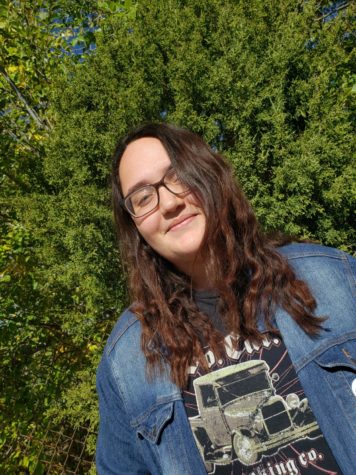Horror Genre Takes a Disappointing Turn in Recent Times
Courtesy of Cannes Film Festival
Train to Busan screen cap.
September 19, 2019
There’s no denying that everyone seeks a source of comfort in their lives to escape the everyday terrors of reality, and whether that source of comfort makes us more desensitized to the brutalities of this world is an entirely different conversation for another day.
I find that many individuals on this earth are thrill-seekers; people who find satisfaction and crave immediate gratification from a single source of adrenaline.
Something that a great majority of people pay for in order to feel that sort of rush are films, specifically horror films. The horror genre has evoked fear in our world for decades, and hopefully will continue to do so. However, the horror genre has taken a disappointing turn in recent times, losing its art and its ability to instill emotion.
As an avid film junkie, I must make a few things clear before I begin to talk about the horror genre and why modern horror is just not making the cut these days. If you know me, you know I have a profound love for horror films, and I usually spend my weekends watching them. There’s no other genre of film that resonates with me more than the horror genre does, and I think that’s important for me to establish before I continue stating my opinion.
With that, let’s talk about modern horror and why it has lost its spark. Don’t get me wrong, there have been some wicked horror film releases that have made names for themselves during the last couple of years. Yet, a great majority of them haven’t made it on my list of favorites because they lack authenticity, creativity, and quite frankly, just plain recreation. It seems to me that people are so focused on trying to create “the perfect horror film” that they can’t break out of a formula many film creators have created and followed.
Audiences everywhere are allowed to like the types of films that they enjoy. I refuse to be the one person in the room that scrutinizes others for liking what they like. However, I’m still allowed to disagree with what people consider a “cinematic masterpiece.” I feel that people limit the types of horror films they watch by popularity because they don’t want to venture outside the horror movie world to discover some fantastic foreign and/or indie films. Rather than watching an installment from literally any other mediocre zombie movie franchise, why not pay your attention to Train to Busan; in my opinion, one of the best foreign zombie flicks ever made.
Another thing that has made modern horror films unbearable is the excessive usage of jump scares. Oh, the horror. This technique has been overused, and I’m sick of expecting the expected. There are many horror movie tropes, cliches, and techniques that I cannot bear to sit through. I want film directors to experiment with new, fresh methods in order to achieve widespread terror, just like some of the classics were able to do a few decades back.
Speaking of classics, I am aware that not every classic horror film has been glorious. I must recognize that horror film standards have changed drastically over the course of one just one decade. However, they set a powerful foundation for the horror genre, and we should, to some extent, respect that. A film that I feel is a perfect exemplification of that is Scream, directed by horror mastermind Wes Craven. I’m slightly biased considering I admire Wes Craven with all of my heart, but Scream made a powerful statement on horror cinema in the 90s. It, simultaneously, used and mocked horror film cliches, as horror films had been at a loss during that time.
Now, I just feel that a majority of modern horror films are ridiculing themselves without any exertion. Films like Insidious, The Conjuring, and The Curse of La Llorona are just bland, unentertaining, and merely formulaic in pandering to the wants of audiences everywhere. We’ve heard of ghost stories since childhood, so why aren’t film directors making these horrific childhood tales come to life to give us one more scare? It’s a hopeful prospect that I know will never reach its full potential.
Introspectively, I must also relate all of this back to the real world horrors we face everyday. Without realism and raw emotion, horror films lack a great deal of what people encounter on a day-to-day basis. Sure, a film can have gorgeous cinematography and interesting themes, but that doesn’t compensate for poor acting and a lack of premises. As a collective audience of horror, the raw and frightening parts of films need to be prominent in order to distract people from the terror they have in their lives.
All in all, the horror genre has lost its passion, its thoughtfulness, and its art. People who find solace in the grotesque are resorting to other genres of film, and it’s a sad sight. If we want to preserve the art of horror films, we mustn’t worry about popularity and perfection, but about competence and conviction because those are two important elements to consider. Let’s make horror great again, shall we?


